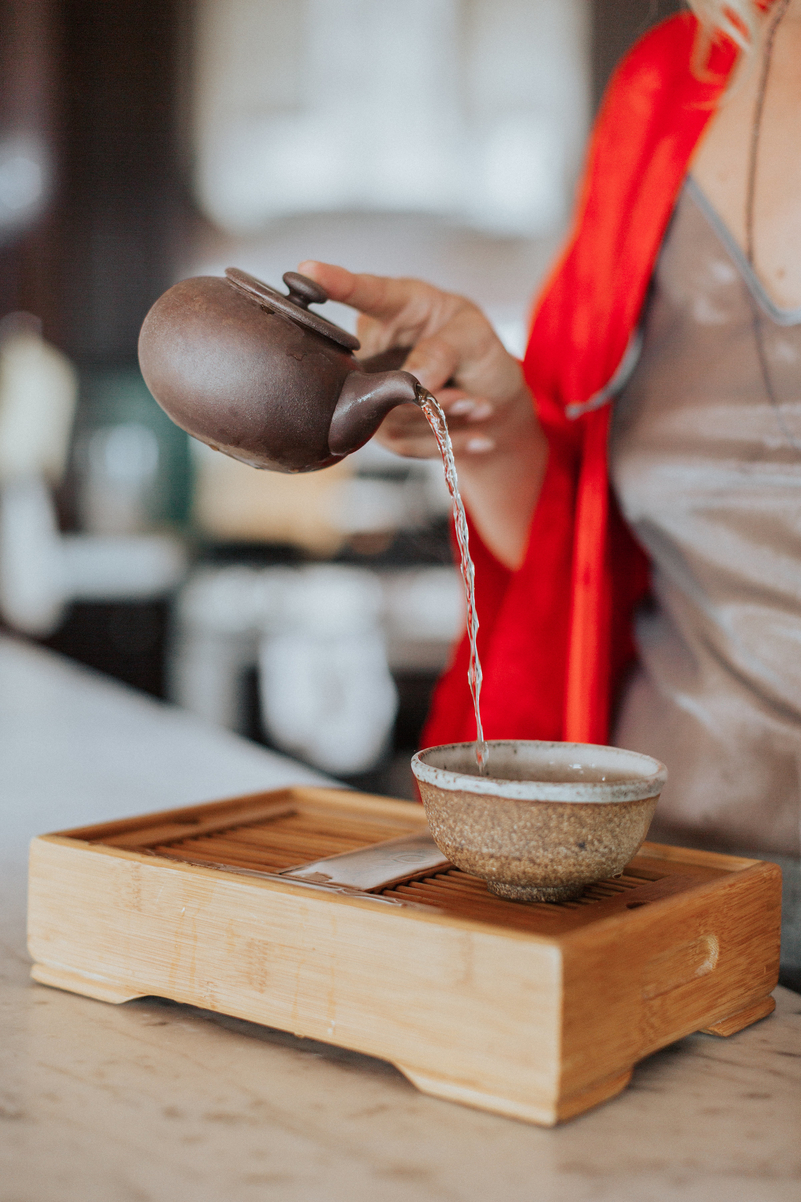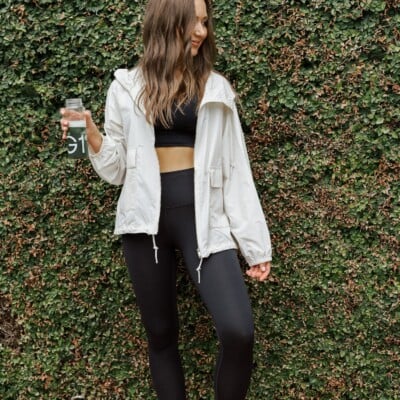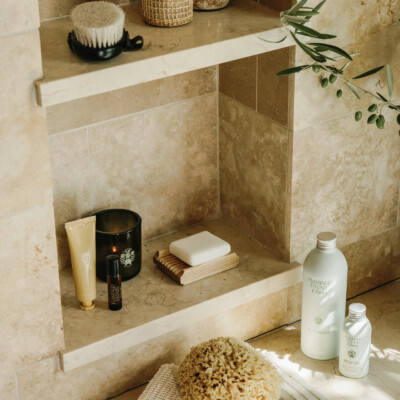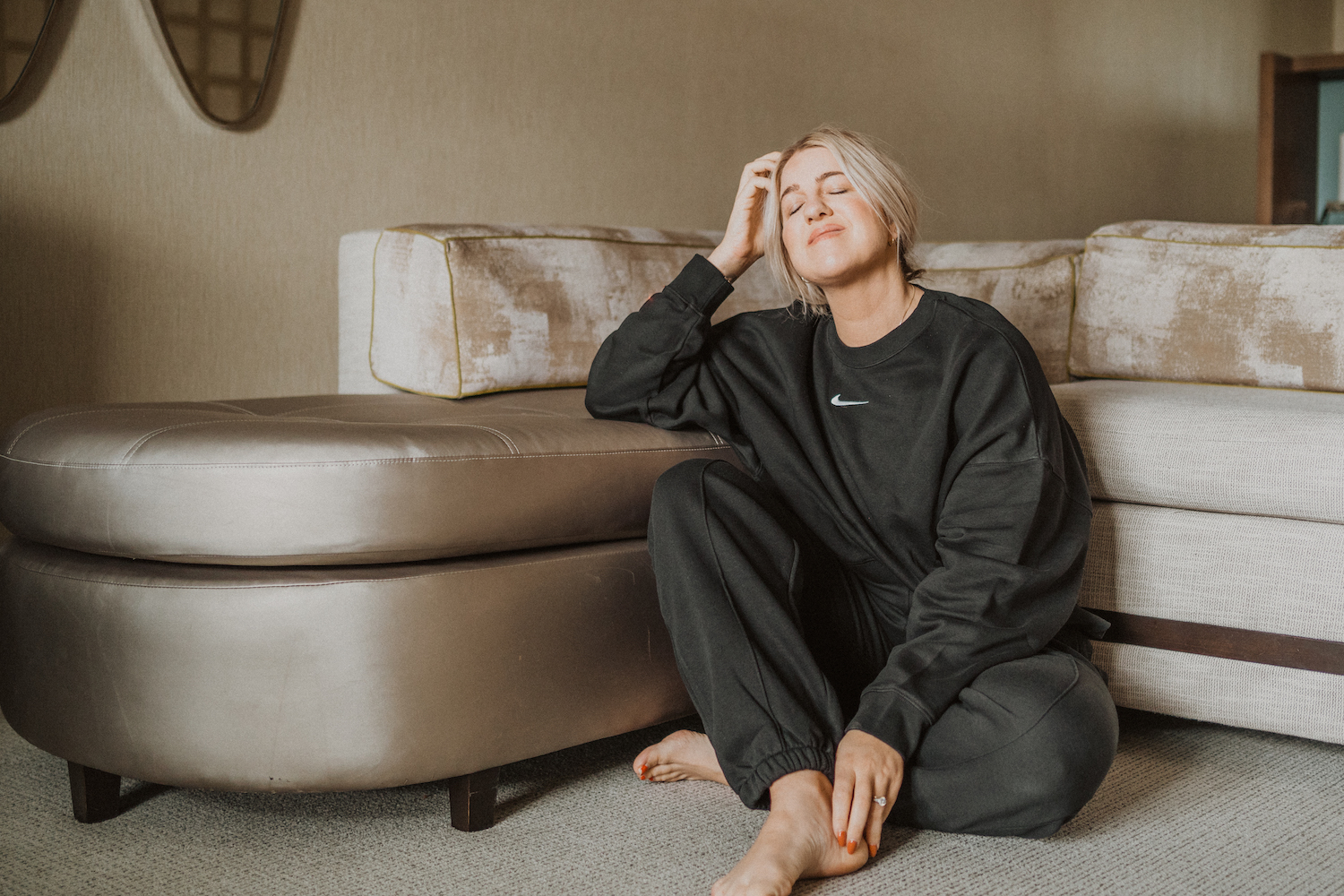“Are you guys ready to go out in the field and make a ruckus?”
And so Gwyneth Paltrow exhorts her team in the trailer of Netflix’s new series, the goop lab, which I’ve just finished watching with a unique mix of fascination, skepticism, and sometimes — just plain annoyance. One minute I’m rolling my eyes, the next I’m, “Huh, that’s interesting,” and the next, I’m googling the names of the “expert” interviewees to find out just who are these people?! The fact that it’s basically a beautifully shot and produced version of what we were doing a couple years back with our series, The Wellness Report (remember our adventures with sound baths and goat yoga?) piqued my interest enough to find out which health trends goop’s editors would find edgy enough to tackle.
For those of you who haven’t watched the show, let’s get into it. In each episode, goop staffers volunteer to try out a controversial wellness practice—orgasm coaching, psychic mediums, a variety of cleanses, cold therapy, and psychedelics—then unpack it with personal experience, expert interviews, and case studies of those who swear by its healing properties. Here are a few highlights (or lowlights, depending on who you ask):
- The vagina episode.
- What I liked: Most women (myself included) could benefit from a lesson in releasing shame and getting more vulnerable when it comes to sex. Starting with our own bodies. Without a doubt, the most striking moment in the episode came when a series of close shots of vaginas (or more specifically, “vulvas,” as we learned from sex educator Betty Dodson) and their diversity in size, shape, color, and form was an eye-popping reminder that when it comes to our lady parts, we’re all beautiful.
- What bugged me: I began watching this episode with a genuine desire to learn something about, well, desire… but instead of applicable advice or tips, it felt like the main offering was shock value. We got to watch Dodson’s business partner having an on-screen orgasm, but left without any real learnings for achieving a peak experience of our own.
- The energy episode.
- What I liked: TBH, I’m stretching to find anything I liked about this episode… but I do believe that “energy” is more powerful in the physical world than mainstream science typically preaches, so that’s something. Bringing focus and attention to the type of energy we’re absorbing and creating can be a major catalyst for change in our lives. And even if I don’t fully buy into John Amaral’s exorcist-like manipulations of energy fields… there’s no denying that the placebo effect can be a legitimate path to healing from pain and trauma.
- What bugged me: This episode provided the most ammunition for snake oil accusations; as Amaral waves his hand above the writhing, contorting goop staffers who signed up for this gig, you’re not quite sure whether to giggle or turn off the television. The fact that Julianne Hough makes a random appearance on the show doesn’t help; she’s a major Amaral devotee who also happens to be in the middle of promoting her new “dance collective.” (ps her much talked about public energy session at Davos is a must-watch.)
- The freezing cold episode:
- What I liked: Okay this episode, for me, was the series highlight. Wim “Iceman” Hof is a charismatic dutchman who has set world records in withstanding ice cold temperatures. He teaches the goop guinea pigs his body training techniques that include deep breathing, mindfulness, and submerging the body into icy cold waters to combat stress and fend off illness. And in this case, there’s compelling science to back up the claims. It was actually inspiring to watch one goop staffer who’d been suffering from severe panic attacks overcome her fears and reclaim her inner power.
- What bugged me: I’ll be honest, I drank the (freezing cold) kool-aid, but I haven’t yet been able to force myself to start the day with a cold shower.
You know what piqued my curiosity even more than the show itself? The public (and press’s) reaction to the show.
While controversy is certainly nothing new to goop, this show is making people lose their minds. One Google search of “the goop lab” brought up page after page of scathing articles from writers who call the show “awful,” “dangerous,” “junk science,” and that it “exposes Goop to be a terrible company with a clueless founder.” And the social media response is even more extreme: this post showed up in my Instagram feed, and a quick scroll through the comments brought up, “Promotion of pseudoscience garners an unfollow,” and “How you thought this endorsement was going to go well for you is way beyond me. Stop. Peddling. Bulls***.”
Huh. Triggered much? @katieaselton responded that “tonight I watched an episode of television that encourages women to better understand their bodies… I haven’t seen all the episodes but I liked this one. You don’t have to watch it. It’s okay. And you don’t have to follow me. But I also think it’s okay to disagree on things and having a conversations is way more fruitful than throwing insults and walking away.”
And therein lies the real issue for me. Do I think that everything on the goop lab is rooted in science? Of course not. There are some super silly moments on the show that are obviously there for shock value, and there are times when I wish that Gwyneth and Elyse had dug deeper and challenged the assumptions portrayed in the expert interviews. But do I think that the producers and goop team should be able to create a show that’s controversial and polarizing, one that many people disagree with? Sure. This show was never supposed to be a fair and unbiased “news” show — it’s entertainment, and the producers are viewing the topics through the lens of one brand’s point of view. Each episode begins with the disclaimer that the series “is designed to entertain and inform — not provide medical advice.”
Goop loves controversy. Jade eggs, vagina steaming, and the infamous candle have only served to garner publicity, which for a media business, is worth its weight in gold. Its critics express a collective feeling that the brand is capitalizing on people’s fears and anxieties in order to sell product. But to me, that feels like a cop out. To assume that fully-grown adults don’t have the ability to consume information, do their research and then make a personal choice about whether a wellness trend is right for them feels a little insulting. Plus, it’s worth pointing out that the practices portrayed in the goop lab are nothing new: people have been doing cold therapy and psychedelic medicine for decades – the show simply brings them from the fringe and explores whether they could be relevant in our anxiety-ridden mainstream culture.
I believe that we can approach new ideas with an open mind, listen to opinions we disagree with, even try them on for a bit and then decide they’re not right for us. In this deeply polarized world where it often feels like the “other side” is so far from our own experience, it seems that many people instinctually move to shut down voices that threaten their own world view. I think the ability to get curious and listen to an opposing point of view is a skill that will serve all of us well, especially in a time when true empathy is increasingly rare. At its best, the goop lab gave me insight into how some practices that seem silly to me might be meaningful to someone else — and it even encouraged me to question a few of my own assumptions.
So has goop gone too far? You know, I don’t think so.








